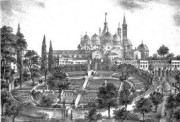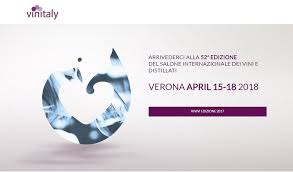The Origins
Petrarch was born in Arezzo in 1304 AD; his parents were both Florentines: his father was the notary Pietro of Parenzo of Garzo dell’Incisa (also called Petrarca) and his mother was Eletta Cangiani. In 1302 AD, the mayor of Florence, Cante Gabrielli, condemned Pietro to exile, as a White Guelph (the same also happened to Dante Alighieri, good friend of Pietro ). The family therefore moved first in Tuscany (Arezzo and Incisa), then in France, to Carpentras (Avignon) for a job at the Papal Court.
Education
Petrarch began his studies in Montpellier, then, in 1320 AD, he pursued them in Bologna, with his brother Gherardo, in the area of law.
Avignon
He returned to Avignon in 1326 AD, when his father died, and here, in the Holy Claire Church, he met Laura, a married woman, with whom he desperately fell in love without being reciprocated. Laura was on Petrarch’s mind a bit like Beatrice was on Dante’s mind, a real Muse, even if her precise references have never been clear. In 1330 AD Francis, being quite flat broke, decided to enter the Clergy, (as even his brother Gherardo did later on ), hired by the Cardinal Giovanni Colonna, of whom he became family Chaplain. The powerful Roman family of the Colonna “adopted” Francis, allowing him a comfortable and fashionable life and various trips across Europe (Liege, Paris, Cologne, Lyon, Aix, etc …), where he satisified his desire for knowledge and experience. Despite his religious choice, he was not chaste, and from two different relationships two sons were born, John was born in 1337 AD ( unfortunately he died young) and subsequently, in 1343 AD, Francesca came to life. Some years later Petrarch legitimized them, also helping them economically. In 1336 AD Petrarch went for the first time in Rome and also bought a house in Vaucluse (now Valucluse), moving there from Avignon. Petrarch was a passionate amateur of classical literature, the study of grammar and poets. While studying Petrarch embraced the cause of the return of the Popes in Rome. In 1337 AD he began to write “Africa,” a book that made him incredibly popular, to such an extent that he received two calls, one from Rome and one from Paris, for the Coronation of Poetry. Petrarch chose Rome, where, in 1341 AD, was crowned in the Capitol as ” Magnus et Historicus Poet” with Privilegium Laureae. Later on he moved to Parma and Selvapiana (Reggio Emilia), up to 1342 AD, where he continued writing ” Africa “.
Touring many Cities
In the following years, from 1343 AD to 1351 AD, Petrarch travelled around different Cities: Naples, Parma, Verona, Vaucluse, Carpi, Ferrara, Padua, Manova, Florence and Rome. In this long pilgrimage, invited by friends and powerful men, Petrarch discovered important books and became culturally more knowledgeable. He went back in Provence, and then, after only two years, he collided with the Clerical and cultural environment of the City, and, in 1353 AD, accepted the invitation to settle in Milan made by Giovanni Viscont, where he held various diplomatic assignments. In 1359 AD he left Milan for the fear of plague and took refuge first in Padua and then in Venice. Venice gave Petrerca a house in exchange for a commitment to donate her his huge private library at the time of his death. In Venice, the writer was ” attacked ” by four philosophers, who induced him, in 1370 AD, to return in Padua, where the local Lord, Francesco da Carrara, gave him a small house on the Euganean Hills, in the small village of Arquà, where Petrarch settled and was joined by his daughter Francesca with her husband.
Relocation in Arquà and Petrarch’s Death
He felt so much at ease there, tha he refused an important appointment as secretary to the Papal seat in Avignon. He died in 1374 AD and wanted to be buried next to the Church of the village of Arquà.
Works
Francesco Petrarca wrote many texts; some of them in Latin ( either in Prose or in Verses ); some of them in Vernacular.
Latin-language Works in Verses:
. Africa ( 1339-1342 AD ): heroic poem about the second Punic War and Scipion’s deeds and exploits.
. Bucolicum Carmen ( 1346-1357 AD ): twelve eclogues describing arguments such as politic, love and moral virtue.
. Epistolae Metricae ( 1333-1361 AD ): sixty six letters, some autobiographic, which describe arguments such as politic, love and moral virtue.
. Latin-language Works in prose:
. De viris illustribus ( 1337-1374 AD ): collection of famous men biographies, from Adam to Hercules, with famous antique roman personages as Romolus. This work was dedicated in 1358 AD to Francesco da Carrara, Lord of Padua.
. Rerum memorandarum libri ( 1350-1374 AD ): collection of historical anecdotes useful in learning the moral virtue. . Itinerarium ad sepulcrum domini: a description of the places a person sees when travelling between Genoa and Jerusalem
. Secretum ( 1347-1353 AD ): an intimate dialogue about themes such as sloth, earthly passions, love for Laura and love for Glory, between the Poet and Saint Augustine, in presence of a dumb woman who’s symbolizing the Truth.
. De vita solitaria ( 1346-.1356 AD ): essay where the Poet deals with the concept of loneliness; he exalts the loneliness as a favourable condition of the human soul for thinking, writing, spending time with friends and intellectuals.
. De otio religioso ( 1346-1356 AD ): the Poet glorifies the monastic life which, with its loneliness, is the best possible life a person can have.
. De remediis utriusque fortunae ( 1360-1366 AD ): collection of short dialogues between some different allegoric characters as ” happines ” and ” intellect “. He then wrote many treaties over moral virtues, aimed to teach and pepare the reader the different cases of life. Works in vernacular language:
. Canzoniere ( collection of poems ) : the most renowned work of Petrarca, which he wrote and corrected nine times. This big work comprehends 366 parts. The Poet puts in it only his best writings, carefully selected. Most of the rhymes are about love, the remaining ones are about the moral virtues, politics and religion. Petrarca makes literature become the centre of all. Literature becomes the absolute teacher, the connection between the classic World of ancient Rome, with its poets ( Virgilio, Tito, Cicerone, Seneca, etc … ) and the contemporary World … avoiding the Middle-Age’s culture, which Petrarca doesn’t esteem very much. The immense love for Laura, his beloved woman, is the main theme of this work. The Poet highlights his frustration between the admiration for values such as love and glory ( typical in classical authors ) and the denial of all earthly passion as a good moral model of life.






